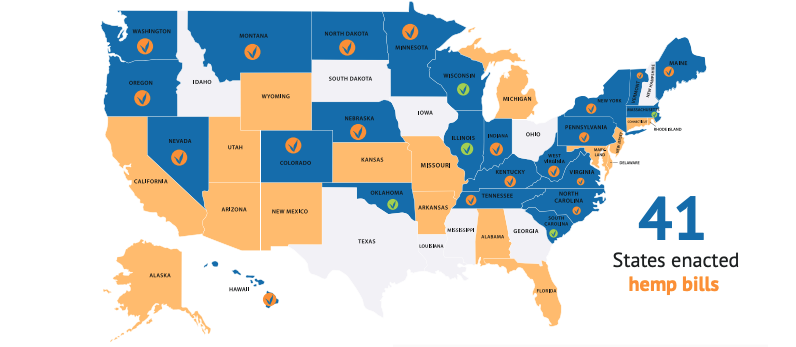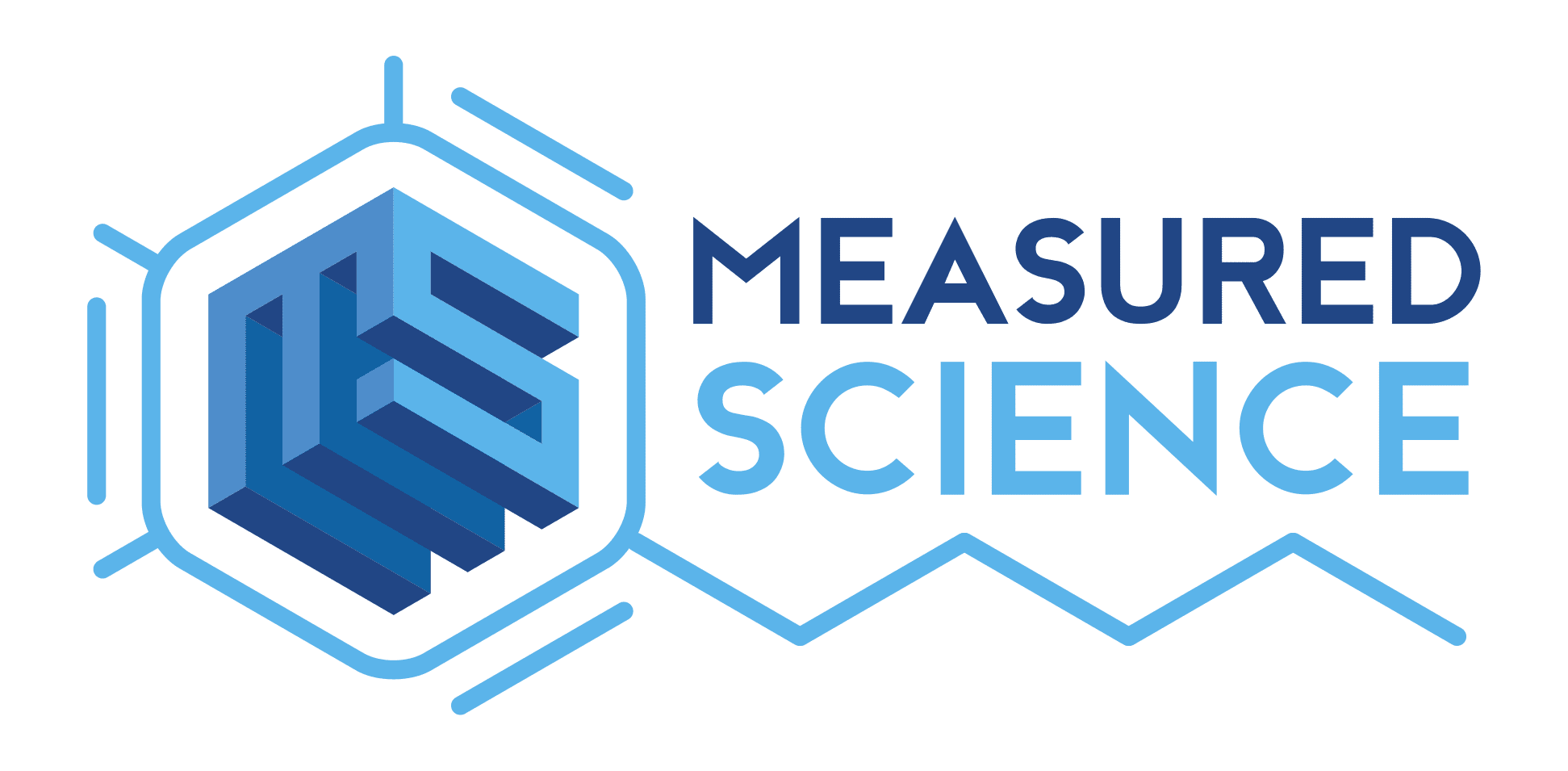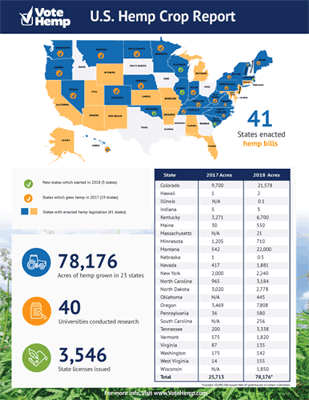
VOTE HEMP RELEASES 2018 U.S. HEMP CROP REPORT DOCUMENTING INDUSTRIAL HEMP CULTIVATION AND STATE LEGISLATION IN THE U.S.
WASHINGTON, DC — Vote Hemp, the nation’s leading grassroots hemp advocacy organization, has released its 2018 U.S. Hemp Crop Report. The report documents state-by-state progress of hemp legislation passed in 2018, reported acreage of hemp grown, identifies states with active hemp pilot farming programs and advocacy work the organization has
“We’ve seen hemp cultivation significantly expand in the U.S. in 2018, with over triple the number of acres planted in hemp compared to last year and the addition of 4 more states with hemp programs,” said Eric Steenstra, President of Vote Hemp. “Now that we have lifted federal prohibition on hemp farming, it’s time to invest our energy in expanding hemp cultivation and the market for hemp products across the country so that all can reap the benefits of this versatile, historic American crop.”
Since the passage of Section 7606 of the 2014 Farm Bill, “Legitimacy of Industrial Hemp Research,” hemp cultivation in the U.S. has grown rapidly. The number of acres of hemp grown across 23 states totaled 78,176 in 2018—more than triple the number of acres from the previous year. State licenses to cultivate hemp were issued to 3,544 farmers and researchers; and 40 universities conducted research on the crop, more than double the number of licenses issued in 2017. The new 2018 Farm Bill, signed into law by the President on December 20, 2018, includes Section 10113 titled “Hemp Production,” which removes hemp from the Controlled Substances Act, places full federal regulatory authority of hemp with USDA, and allows State departments of agriculture to submit hemp program plans for approval and regulate hemp cultivation per their State-specific programs.
Among the fastest-growing categories in the natural foods industry, hemp seed is a rich source of Omega-3 and Omega-6 essential fatty acids (EFAs), providing both SDA and GLA, highly-digestible protein, and naturally-occurring vitamins and minerals, such as vitamin E and iron. An excellent source of dietary fiber, hemp seed is also a complete protein—meaning it contains all ten essential amino acids, with no enzyme inhibitors, making it more digestible by the human body. Advancements in hemp research and manufacturing demonstrate the remarkable versatility and product-potential for hemp. Hemp bast fiber has shown promising potential to replace graphene in supercapacitor batteries, which could then be used to power electric cars and handheld electric devices and tools. Hemp fiber can also be used to create environmentally friendly packaging materials and hard bio-plastics for use in everything from airplanes to car parts. Hemp houses are also on the rise, as hempcrete, which is energy-efficient, non-toxic, resistant to mold, insects, and fire, has many advantages to synthetic building materials, lumber, and concrete. In addition to defining hemp as cannabis that contains no more than 0.3% THC by dry weight, the 2018 Farm Bill asserts a ‘whole plant’ definition of hemp, including plant extracts; and removes roadblocks to the rapidly growing hemp industry in the U.S., notably by authorizing and encouraging access to federal research funding for hemp, and removing restrictions on banking, water rights, and other regulatory roadblocks the hemp industry currently faces. The bill also explicitly authorizes crop insurance for hemp. The full text of the hemp provisions in the Farm Bill of 2018 may be found at https://www.votehemp.com/2018farmbill. For more details on the specific hemp provisions in the 2018 Farm Bill, please check out Vote Hemp’s blog post, “Hemp in the Farm Bill: What Does It Mean?” https://www.VoteHemp.com/hempinthefarmbill.
To date, forty-one states have defined industrial hemp as distinct and removed barriers to its production. These states are able to take immediate advantage of the industrial hemp research and pilot program provision, Section 7606 of the Farm Bill: Alabama, Alaska, Arizona, Arkansas, California, Colorado, Connecticut, Delaware, Florida, Hawaii, Illinois, Indiana, Kansas, Kentucky, Maine, Maryland, Massachusetts, Michigan, Minnesota, Missouri, Montana, Nebraska, Nevada, New Jersey, New Mexico, New York, North Carolina, North Dakota, Oklahoma, Oregon, Pennsylvania, Rhode Island, South Carolina, Tennessee, Utah, Vermont, Virginia, Washington, West Virginia, Wisconsin, and Wyoming.
See original Vote Hemp article here
2018 Hemp Crop Report – 78,176 acres grown
2017 Hemp Crop Report – 25,713 acres grown
2016 Hemp Crop Report – 9,770 acres grown
ABOUT US: Measured Science is an industrial scale producer of THC-free full spectrum CBD Oil, broad-spectrum CBD Isolate, water-soluble
LAW ENFORCEMENT NOTICE: While the product may look and smell like marijuana, it’s actually legal industrial hemp flower. Legal per Farm Bill 7606 of The Agricultural Act signed by the President in 2014; which realizes the dichotomy of what is considered Marijuana and what is considered Hemp; defined in Bill H.R.3530; which exempts industrial hemp its derivatives from the controlled substances list, defining industrial hemp as any cannabis plant containing less than 0.3% THC by dry weight.
US GOVERNMENT PATENT #6,630,507: "CANNABINOIDS AS ANTIOXIDANTS AND NEUROPROTECTANTS"


Recent Comments